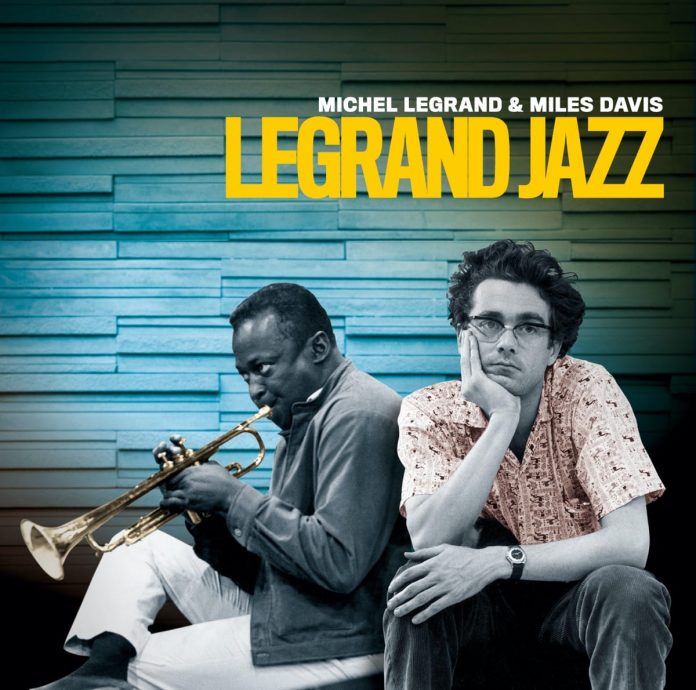He does play beautifully, but it’s pushing it a bit to give Miles shared credit with Michel, since he’s only on four of the 22 numbers.
However, as we Miles completists know of old, this Wild Man Blues ranks with the versions by Louis Armstrong and Sidney Bechet as the three best ever. Wild Man belts along at twice its usual tempo with Miles wading through a lot of scored clutter from vibes and things before he solos. Considering that this was his record company, you’d think they would have known to put him a bit nearer the mike. Coltrane has a confident blow. With so much going on at 3.27 duration they’re gone almost as soon as they arrive. What a shame.
Legrand gives the trumpeter more room on a delicate Midnight, with Miles on his favourite mute. Miles and Bill Evans open the joyous Jitterbug, with the arranging sounding far more disciplined and effective. Miles improvises happily and the chart makes an interesting contrast with what Gil might have provided. Legrand is very busy by comparison. Phil Woods, Coltrane and Evans get solos and Miles plays a lovely open coda.
Back to the tight mute as Miles plays against the harp in Django. Bill Evans and Paul Chambers behind him make it feel almost like home. Legrand provides a spectacular platform for the trombones, and their session benefits from being clutter-free, but Ben, by his standards, is pretty undistinguished.
Stomping is a delight, with Phil Woods wailing the best sax solo from the album whilst the four trumpets wrestle each other to the ground and Rehak has a nice one. It’s good to hear them break out, for one sometimes feels the arranger holds them back.
The last 12 tracks are suitably plush with names like Gonsalves, Urbie, Clark Terry and the ever-present Woods flashing by to not much effect.
Still, it’s a good album that’s never less than interesting, even if it could benefit from a kick up the ass. Legrand is obviously an outstanding master of his trade and he knows his jazz, even if he seems parsimonious about handing it out to the corralled stars.
Discography
(1) Wild Man Blues; ’Round Midnight; Jitterbug Waltz; Django; (2) Nuages; Rosetta; Don’t Get Around Much Any More; Blue And Sentimental; (3) Stomping At The Savoy; A Night In Tunisia; In A Mist; (4) Falling In Love With Love; People Will Say We’re In Love; Bali Ha’i; Have You Met Miss Jones?; It Might As Well Be Spring; This Can’t Be Love; Some Enchanted Evening; There’s A Small Hotel; Getting To Know You; My Funny Valentine; The Lady Is A Tramp (76.06)
(1) Miles Davis (t) Herbie Mann (f); Jerome Richardson (cl, bar); Phil Woods (as); John Coltrane (ts); Betty Glamann (hp); Eddie Costa (vib); Bill Evans (p); Barry Galbraith (g); Paul Chambers (b); Kenny Dennis (d). NYC, 25 June 1958.
(2) Frank Rehak, Jimmy Cleveland, Billy Byers, Eddie Bert (tb); Herbie Mann (f); Ben Webster (ts); Hank Jones (p); Major Holley (tu); George Duvivier (b); Don Lamond (d). NYC, 27 June 1958.
(3) Art Farmer, Ernie Royal, Donald Byrd, Joe Wilder (t); Frank Rehak, Jimmy Cleveland (tb); Jim Buffington (fh); Gene Quill, Phil Woods (as); Seldon Powell (ts); Teo Macero (bar); Don Elliott (vib); Nat Pierce (p); Milt Hinton (b); Osie Johnson (d). NYC, 30 June 1958.
(4) Michel Legrand leading three 30-piece orchestras, each on a different date. NYC, 4, 5 and 6 December 1962.
20th Century Masterworks 170033















